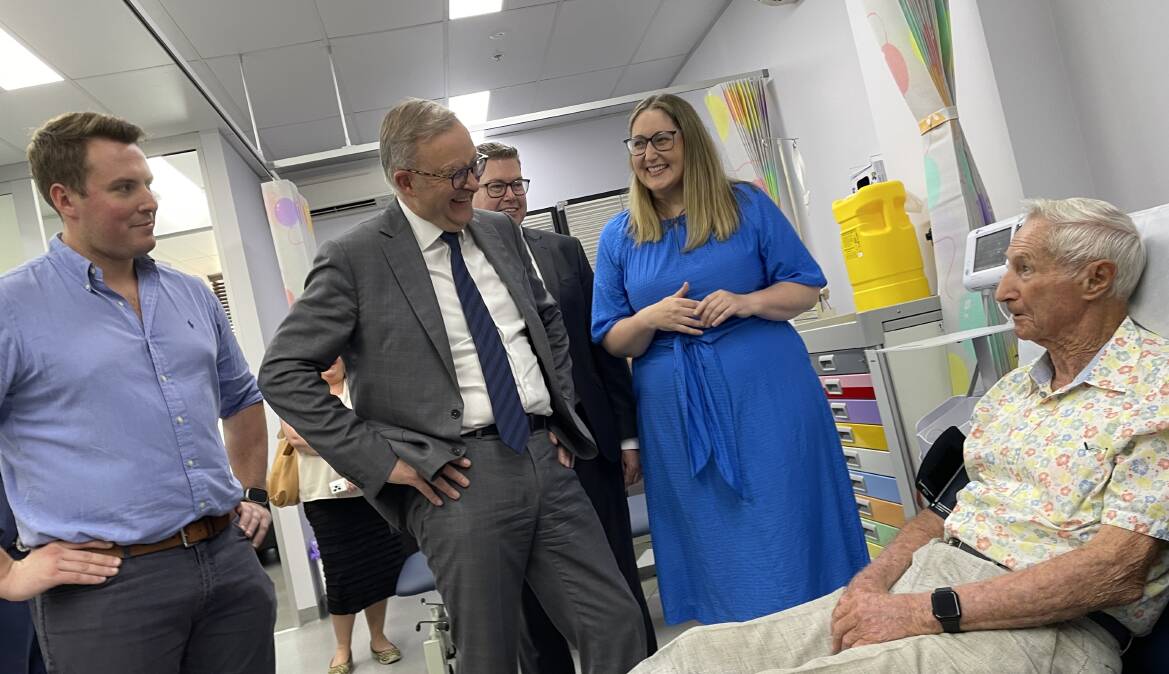
The Hunter's bulk-billing rate has fallen by 15 per cent in two years, federal data shows.
The latest Medicare data, released this week for the December quarter 2023/24, shows a bulk-billing rate for all ages across the Hunter network of 71 per cent.
In comparison, the network's bulk-billing rate stood at 85.9 per cent in the same quarter of 2021/22.
The federal government is seeking to arrest this decline with GP bulk-billing incentives aimed at the most disadvantaged people.
However, Newcastle health economist Francesco Paolucci said bulk-billing incentives directed only to disadvantaged people amounted to "moving into new territory".
The Medicare bulk-billing system was intended to be "universal".
Professor Paolucci said it made sense to "move away from an average payment for everybody", and towards a system of subsidies based on disease risk.
He said countries such as Germany, Netherlands and Switzerland were using this approach "very effectively".
"It's called risk-adjusted subsidies. There's a lot of evidence this is the way to go," he said.
However, such a system had to be carefully calibrated, as "you don't want to reward behaviour that leads to disease, like smoking and drinking excessively".
Federal Health Minister Mark Butler said "bulk-billing is the beating heart of Medicare and a Labor government will always protect it".
"Novocastrians have seen some of the largest increases in bulk-billing in Australia, since the Albanese government tripled the bulk-billing incentive," Mr Butler said.
The government estimated that 10,800 additional trips to the GP were bulk-billed in the Hunter in November and December due to the incentive.
"Bulk billing had been falling after a decade of cuts and neglect to Medicare by the former government," Mr Butler said.
Professor Paolucci, of University of Newcastle, said rising costs to see a GP were a big concern.
The average out-of-pocket cost for Hunter/Central Coast patients to see a GP was $40.99 on average in the December quarter, rising from $26.98 a decade ago.
The lowest costs in NSW for this measure were South Eastern NSW [$34], Nepean Blue Mountains [$36.58] and South Western Sydney [$38.66].
Professor Paolucci said rising GP fees were one of many signs of the health system's inefficiency and "increasing inability to be affordable and equitable".
He added that these trends were "indicative of deterioration and symptomatic of the lack of regulation around prices".
The Hunter network's 71 per cent bulk-billing rate was the second lowest among primary health networks in the state in the December quarter of 2023/24.
The figure, which includes the Central Coast and New England, was below the NSW rate of 81.3 per cent and the national rate of 76.5 per cent.
In comparison, other primary health networks recorded bulk-billing rates of 93.8 per cent [South Western Sydney], 93.2 per cent [Western Sydney] and 82 per cent [Western NSW].
The median income in these areas is mostly below or similar to Hunter areas, ABS data shows.
The Northern Sydney health network had the lowest bulk-billing rate [70.5 per cent], slightly below the Hunter rate. Northern Sydney's median income is well above the Hunter.
While the rates seem high given the difficulty in finding a bulk-billing GP, the government says they refer to "all GP visits and consults" that were bulk-billed.
Allegations were aired last year that systemic rorting of Medicare was artificially inflating official bulk-billing statistics.
A government review of Medicare found "non-compliance errors rather than premeditated fraud" was likely costing taxpayers $1.5 to $3 billion a year.
Medicare's estimated budget for 2023/24 is $30.4 billion.
The review recommended "improving the detection and disruption of fraud and non-compliance, and mechanisms to address inappropriate and incorrect claiming".
The bulk-billing rates also reflect GPs continuing to help the most disadvantaged people while absorbing rising costs.
Since November 1, the government has offered GPs extra incentives to bulk-bill patients aged under 16, pensioners and concession card holders.
The Albanese government said last month that this had helped arrest the decline in bulk-billing in the Hunter and elsewhere.
However, people who don't have concession cards are also concerned about GP prices, with gap fees rising as high as $54 per standard consultation in Newcastle.
The Medicare rebate for a standard GP consultation is $41.40, but GPs are charging patients up to $95 to cover their rising costs.
The Newcastle Herald asked Mr Albanese at a press conference last Friday if it was a realistic aim for most people to be bulk-billed for GP visits.
The prime minister responded by reaffirming that his government "supports bulk-billing and Medicare".
Mr Butler celebrated the 40-year anniversary of Medicare earlier this month, while highlighting measures to strengthen it.
"Labor and Social Democratic parties came out of the ashes of the Great Depression and then World War II, determined to build a fairer society," he said.
"There was no more important element to that platform than universal healthcare."
Conservative parties, he said, had sought to "abolish universal healthcare in its entirety".







